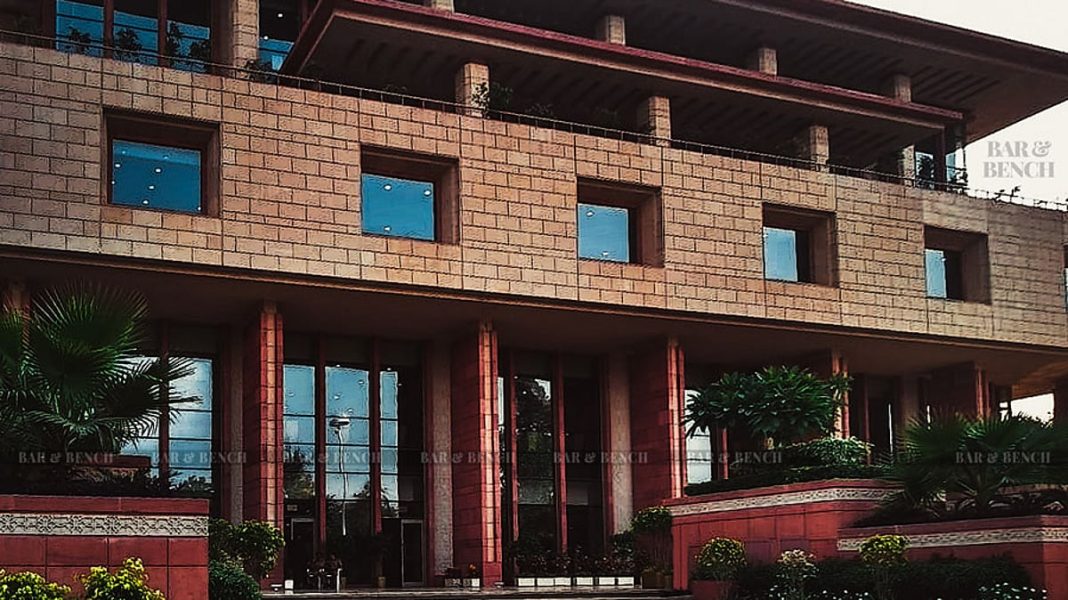In a significant development that underscores the sanctity of justice and accountability within the legal profession, the Delhi High Court has taken a stringent stance, cancelling the anticipatory bail granted to a prominent advocate accused of rape and exploiting his position by allegedly influencing the complainant, a fellow lawyer, through the purported mention of judges.
The decision, delivered by a single-judge bench, overturns a lower court’s order, paving the way for the advocate’s potential arrest and custodial interrogation. This case has sent ripples through the legal fraternity, highlighting grave concerns regarding professional ethics and the alleged misuse of power and influence within the Indian judicial system.
The Gravity of Allegations: Abuse of Trust and Influence
The case revolves around serious allegations levelled by a young woman lawyer against her senior colleague, an advocate with a reputed practice. According to the First Information Report (FIR) lodged by the complainant, the accused advocate allegedly committed sexual assault on multiple occasions over a period, exploiting her vulnerability and professional aspirations.
What has particularly alarmed legal observers is the complainant’s assertion that the accused not only committed the acts of rape but also manipulated her by invoking the names of senior judges. She claimed that the advocate repeatedly assured her of professional advancement, promising partnerships in his firm and better career opportunities, all while allegedly creating an illusion that these prospects were linked to his supposed influence with members of the judiciary.
The complainant’s statement detailed how the accused would purportedly use this leverage to coerce and silence her, making her believe that speaking out would jeopardise her career and incur the displeasure of powerful figures. This alleged psychological manipulation, interwoven with the acts of sexual assault, painted a picture of a profound abuse of trust and professional authority within the close-knit legal environment.
Police investigations had reportedly gathered initial evidence suggesting the veracity of the complainant’s claims, which eventually led to the registration of a criminal case under relevant sections of the Indian Penal Code, including Section 376 (rape).
Anticipatory Bail: A Reversal of Fortune
Initially, a lower court had granted anticipatory bail to the accused advocate. Anticipatory bail, a provision under Section 438 of the Criminal Procedure Code (CrPC), allows a person to seek bail in anticipation of an arrest on accusation of having committed a non-bailable offence. It is typically granted when there is reason to believe that the accusation might be motivated by malice or when the accused’s liberty needs protection from unwarranted arrest, provided they cooperate with the investigation.
However, the complainant, supported by the prosecution, challenged this order in the Delhi High Court, arguing vehemently against the grant of pre-arrest bail. Their primary contention was the extreme gravity of the offences, coupled with the accused’s alleged attempts to influence the victim and tamper with evidence. The prosecution highlighted that the nature of the allegations – involving sexual assault compounded by the alleged misuse of the judiciary’s name to exert control – necessitated a thorough custodial interrogation.
It was contended that releasing the accused on anticipatory bail at an early stage would impede the investigation, particularly concerning the recovery of potential electronic evidence and a deeper understanding of the alleged modus operandi of influencing the complainant through fear and false promises. The complainant’s counsel emphasised the psychological trauma she endured and the significant power imbalance between the accused and the victim.
High Court’s Stern Verdict: Upholding Justice
After carefully considering the arguments presented by both sides, the Delhi High Court concluded that the lower court had erred in granting anticipatory bail. The High Court observed that the allegations were not merely about sexual assault but deeply intertwined with an alleged exploitation of professional position and a disturbing pattern of leveraging the judiciary’s prestige for personal gain.
The court noted that the facts of the case pointed to a concerted effort by the accused to manipulate and intimidate the complainant, making it a matter of profound public interest and concern. The bench stressed the importance of custodial interrogation in such sensitive cases, especially where allegations of influence and tampering with evidence are prominent.
In its order, the High Court reportedly stated, “The gravity of the allegations, particularly the alleged use of influence and the manipulation of a junior colleague under the guise of professional advancement and alleged proximity to judicial officers, cannot be overlooked. Such conduct, if proven, strikes at the very root of trust within the legal system.” This observation underscores the judiciary’s commitment to ensuring that no individual, regardless of their position, can escape accountability, especially when their actions undermine the integrity of the profession.
The cancellation of anticipatory bail means that the advocate no longer enjoys protection from arrest. The police are now free to take him into custody for further investigation. This development is a crucial step towards ensuring a fair and thorough inquiry into the serious charges brought against him.
Conclusion
The Delhi High Court’s decision sends a clear message about the zero-tolerance policy towards abuse of power and professional misconduct within the legal fraternity. It reaffirms the principle that justice must not only be done but must also be seen to be done, particularly when the reputation of the judicial system itself is invoked in alleged acts of crime. As the investigation progresses, this case will undoubtedly be closely watched for its implications on ethical standards and accountability in the legal profession.




